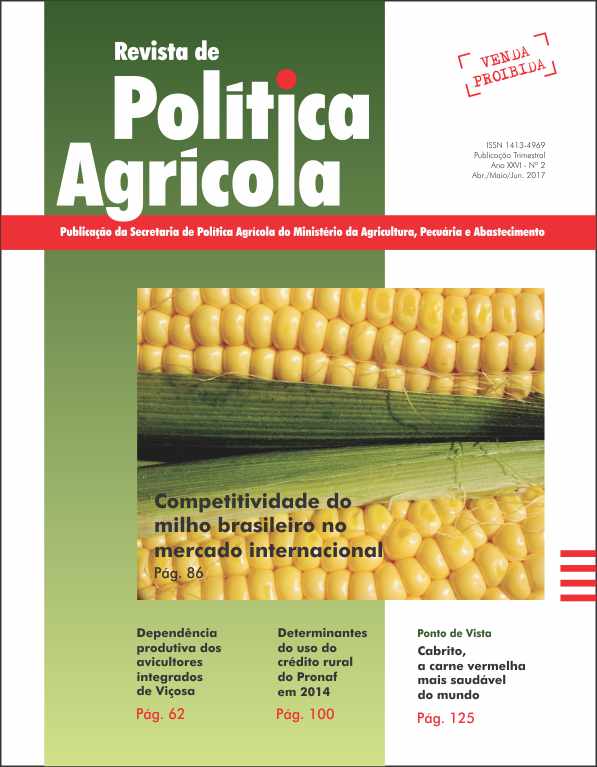Risk analysis of coconut production irrigated in the State of Ceará
Keywords:
rural administration, economic indicators, Monte Carlo methodAbstract
The irrigation project Curu-Paraipaba in the State of Ceará was designed as part of the deployment policy of public irrigation projects through colonization. The project, under the administration of the DNOCS, started in 1975 through the settlement of 521 families of farmers, exploring in almost your whole monoculture of coco. Because of existing barriers, the objective is to analyze and evaluate economically coconut production is irrigated in the said Project, deterministic and risk conditions. The data of primary nature was collected through questionnaires for a sample of 60 rural producers. It is used as a method of calculating analysis of economic indicators in deterministic and condition of risk through the application of Monte Carlo Method. The main conclusion is that some producers present, on average, gross and net margins positive, allowing the permanence of those on short and long term activity. Two-thirds of the farmers resulted in average annual lossesDownloads
How to Cite
Campos, K. C., & Campos, R. T. (2017). Risk analysis of coconut production irrigated in the State of Ceará. Revista De Política Agrícola, 26(2), 45–61. Retrieved from https://rpa.sede.embrapa.br/RPA/article/view/1271
Issue
Section
Artigos Científicos


